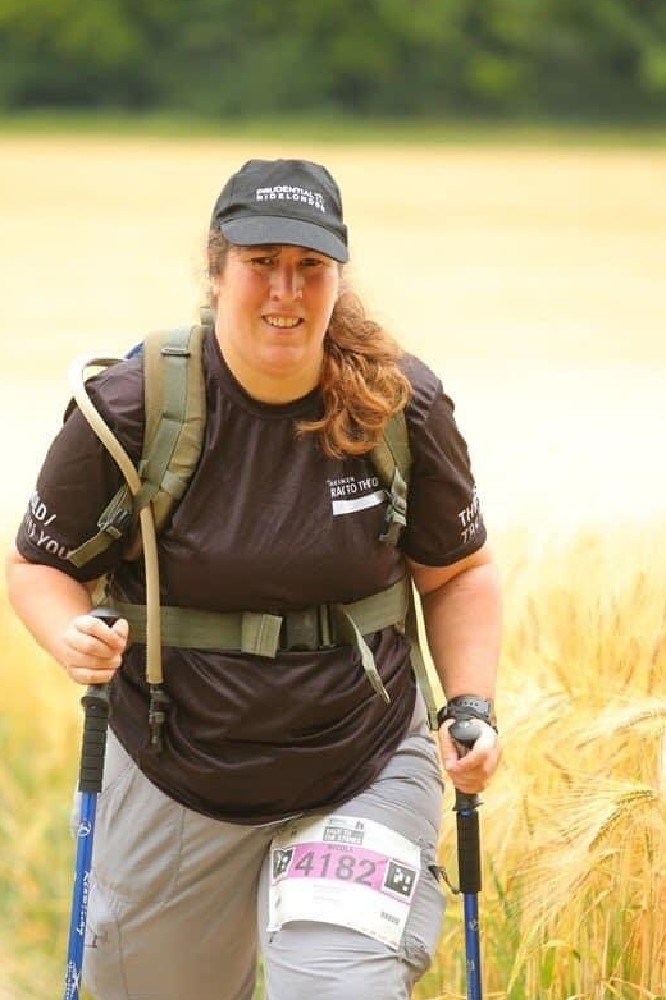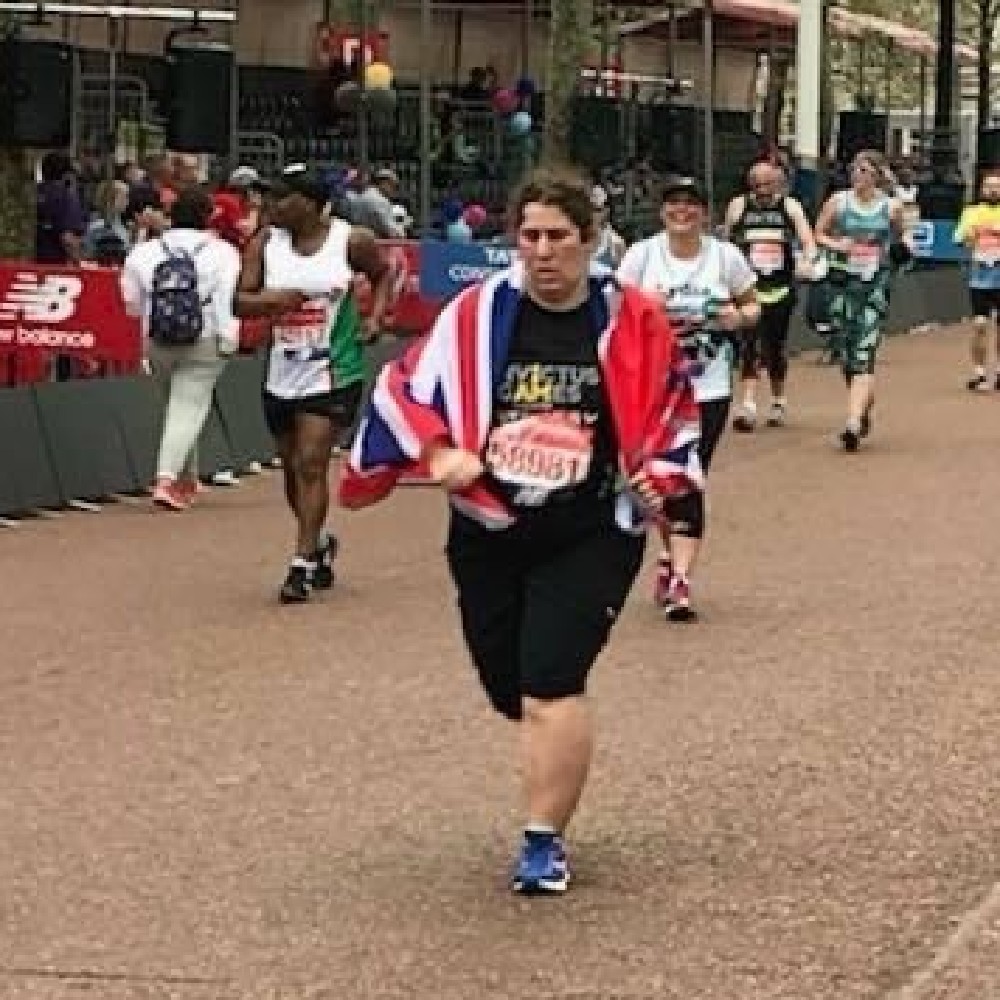By Lucy Roberts
Nicola Stokes used to work in the RAF doing some office-based work and in the technical stores – she even went over to Afghanistan on a tour, but since leaving the military Stokes has struggled and she was diagnosed with non-combat PTSD.

Nicola Stokes
Finding it hard to hold down a job or even get a job due to her RAF background and having a difficult time adjusting to civilian life meant that Stokes was really suffering until she discovered running.
Stokes admitted that she never used to like running but turned to it to help her mental health and she thought it looked fun while watching the London Marathon in 2015 – and the rest is history.
The 38-year-old is taking part in the Threshold Sports Race to the King Ultramarathon this weekend which starts at Goodwood Racecourse and finishes at Winchester Cathedral with scenic views of the South Downs throughout and she is hoping to raise money for the Gurkha Welfare Trust off the back of it.
Q) Why did you want to work in the RAF?
A) I always wanted to be in the RAF, my grandad was in the RAF and my dad and brother both served in the Army. It was something that I was brought up with and was something that I dreamt about. I did first apply for the RAF when I left school, but I failed the aptitude test and was told to come back. I then thought about the Army so started my basic training but had to leave due to family matters. I than again applied for the RAF and finally passed the test.
Q) How did you initially feel when you were told you were going to Afghanistan?
A) I didn’t really have any feeling as I knew at some point I would be sent overseas, and it was something I was used to as my brother was always sent away to Bosnia, Kosovo. My family were more worried than me!

Q) When did you start to notice that you were suffering with non-combat PTSD?
A) I was getting really stressed at home and I had a lot of anger issues and just wanted to end everything. I finally managed to get myself to a doctor and was diagnosed with PTSD.
Q) How did this affect your life in terms of getting a job and your personal adjustment back to civilian life?
A) I found it really hard trying to find a job when I left the military. In the end I decided to leave the military off my CV and was finally getting asked to interviews. I did apply for over 500 jobs everything from picking fruit to being a carer.
Q) When and how did you discover running?
A) I watched the London Marathon back in 2015 and thought it look fun. So, I applied for the ballot and thought I better start training and see what it was all about so my first race was vitality 10k and my next race was a half marathon. I am a slow runner so always at the back and helping others to finish. It makes the race a lot more fun.

Q) Have you ever struggled to find the motivation to go on a run?
A) I have always struggled as I have hypothyroidism and sometimes getting out of bed is a real struggle, but once you get the trainers on and out of the door it makes it all worthwhile. I have started to run/walk from my work which is 5 miles and I find this a lot easier to do.
Q) How rewarding is it not only when you finish a race but when you help other people over the finish line?
A) It’s nice to finish so you know that all the hard work has paid off and you manage to achieve the award at the end. I’ve also liked helping others and this is great when these people have doubts and to see their smile at the end makes it worthwhile.
Q) How are you feeling ahead of the Race to the King ultramarathon this weekend?
A) I’m a little nervous even though I have done this about 3 times before. I think everyone has those moments. Hopefully I can get to halfway and it’s home straight after that.
Q) And you're raising money for the Gurkha Welfare Trust, how important is that cause to you?
A) I’ve always tried to help different military charities each year so for me it’s important to raise awareness on the Gurkha’s and how they are poorly treated and hopefully fundraising to help build homes for them back in Nepal.
Q) You currently work at The Poppy Factory so what is it like working there and how is this job different to your previous jobs which you struggled to hold down due to your PTSD?
A) The Poppy Factory is designed to help veterans into work either at the Factory or in the community. The factory was set up to help those soldiers who had injuries/sick or wounded into jobs from World War One. Most of the factory workers are ex forces and some are civilians who served in the military. It’s really nice atmosphere to work in as there is some great military banter that happens. We also know how to tread if someone is having an off day. There is no pressure on how much you make which is nice also we have people who come on tours, and they also find it nice talking to veterans.
If you’d like to learn more about Threshold Sports ultramarathon events, visit https://www.thresholdsports.co.uk/

